Letter recognition Normal Phonics Worksheets for Ages 5-7
19 filtered results
-
From - To
Boost early literacy skills with our engaging Letter Recognition Normal Phonics Worksheets, designed specifically for children aged 5-7. These printable resources help young learners identify and familiarize themselves with letters through fun and interactive activities. Each worksheet promotes phonetic awareness, ensuring students connect sounds with corresponding letters while honing their fine motor skills. Perfect for teachers, parents, and after-school programs, our worksheets make learning an enjoyable experience. Discover a vibrant collection of activities that support readiness for reading and writing, paving the way for academic success. Dive into a world of letters today and watch your child's confidence soar!
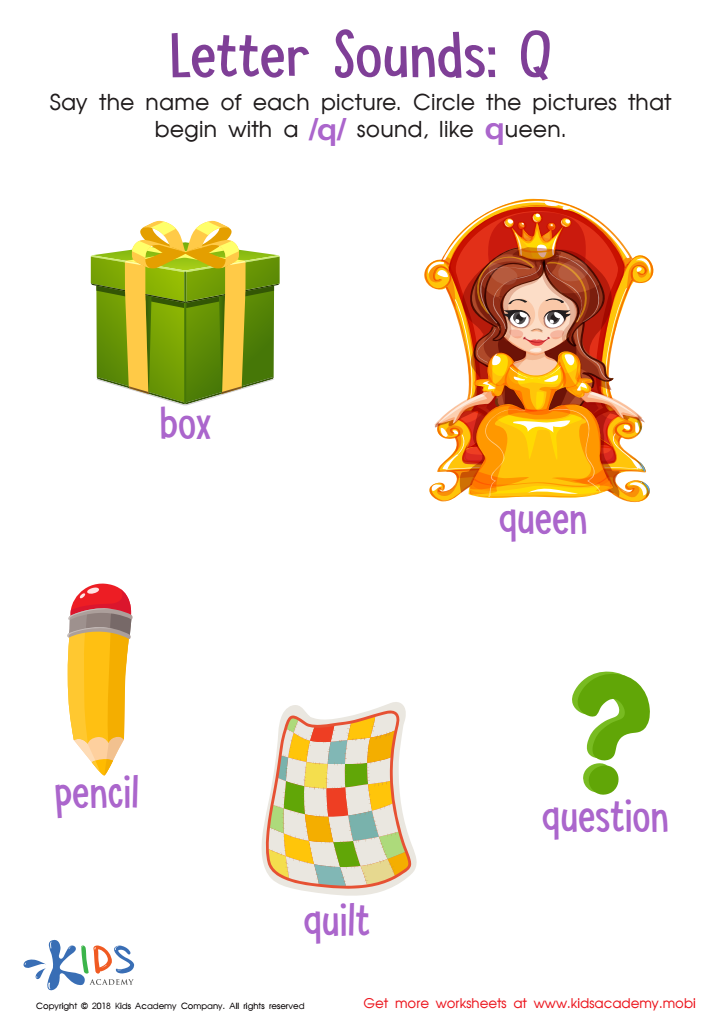

Letter Q Sounds Worksheet
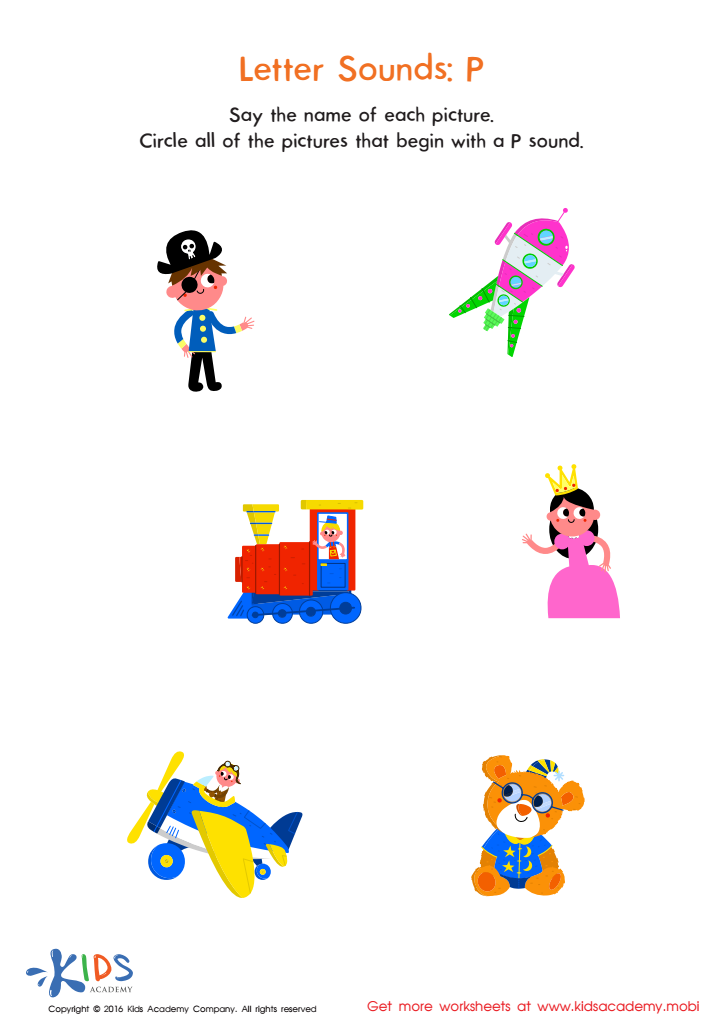

Letter P Sound Worksheet
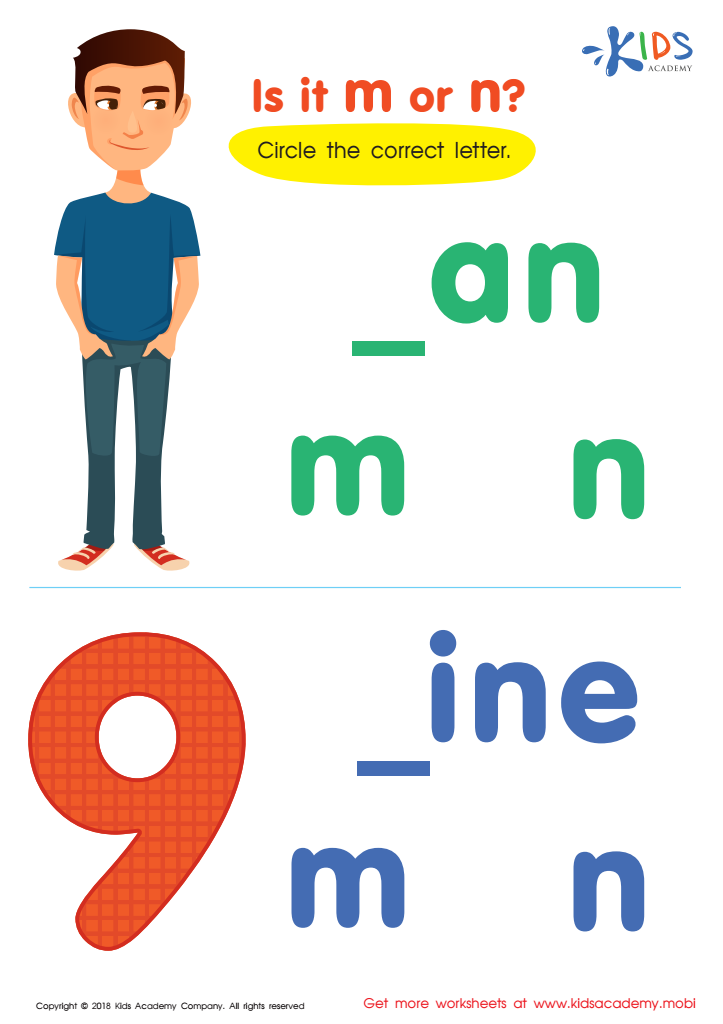

Is It m or n? Worksheet
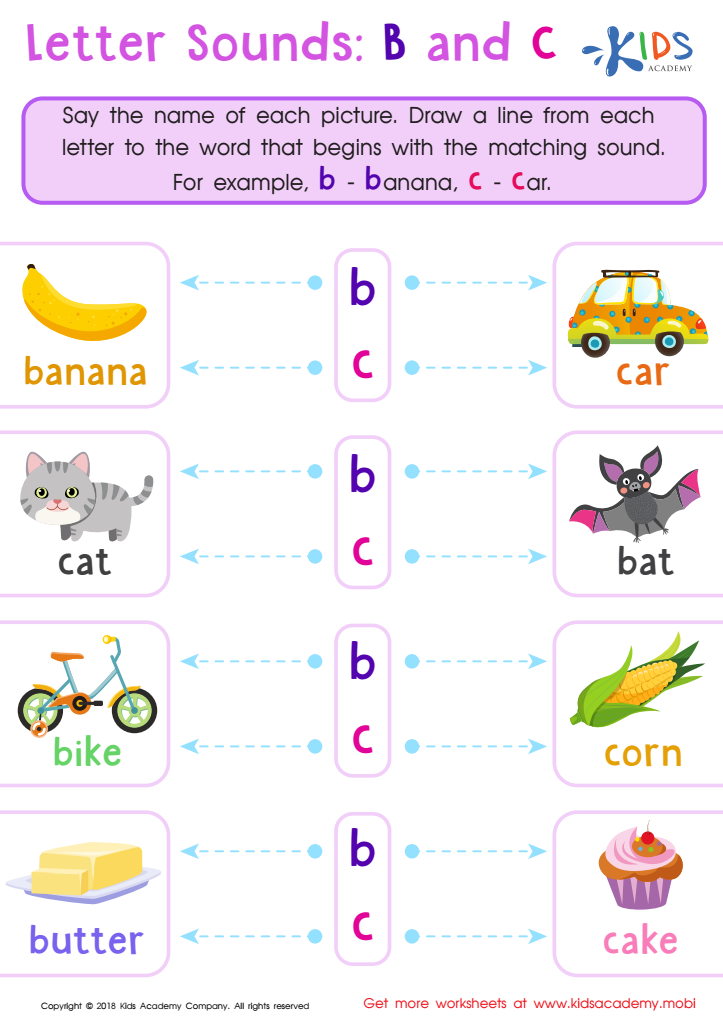

Letter B and C Sounds Worksheet
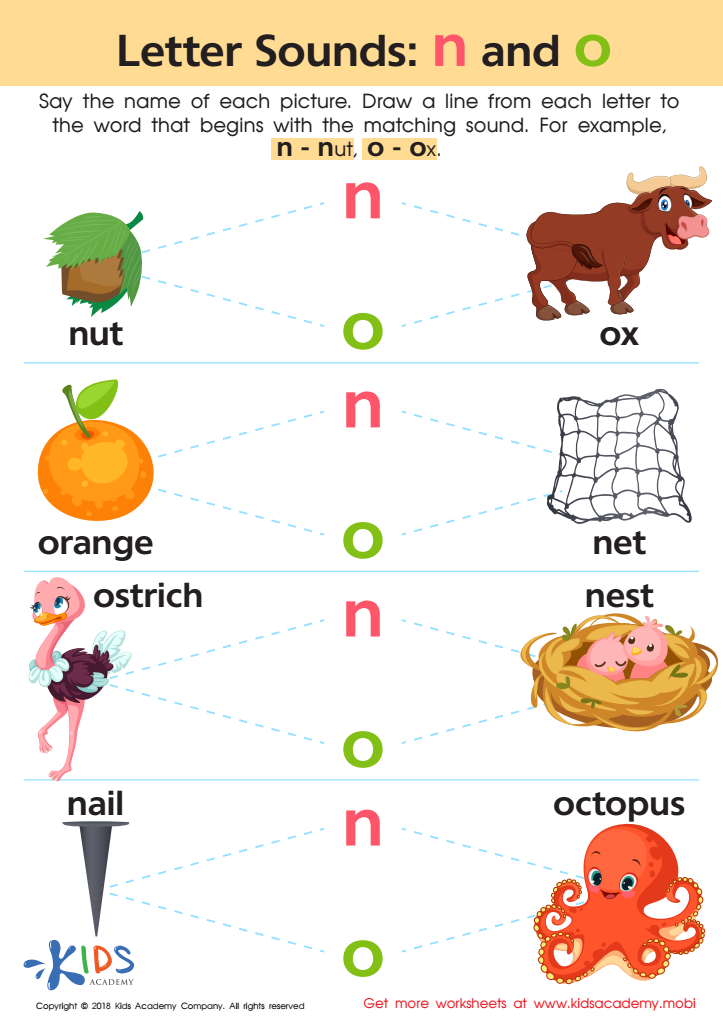

Letter N and O Sounds Worksheet
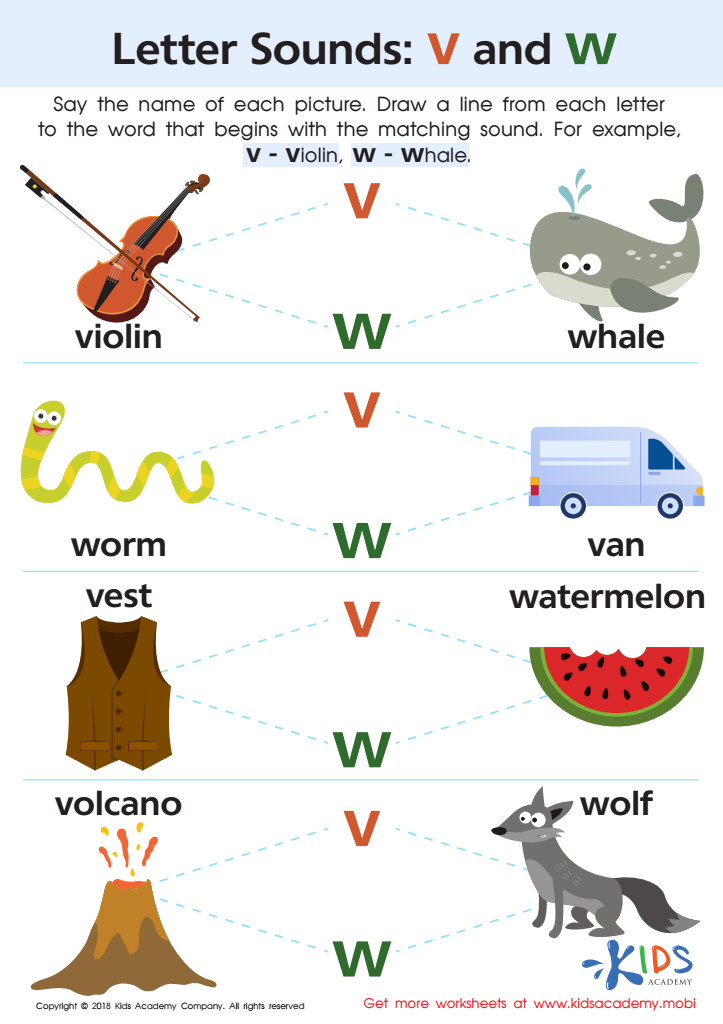

Letter V and W Sounds Worksheet
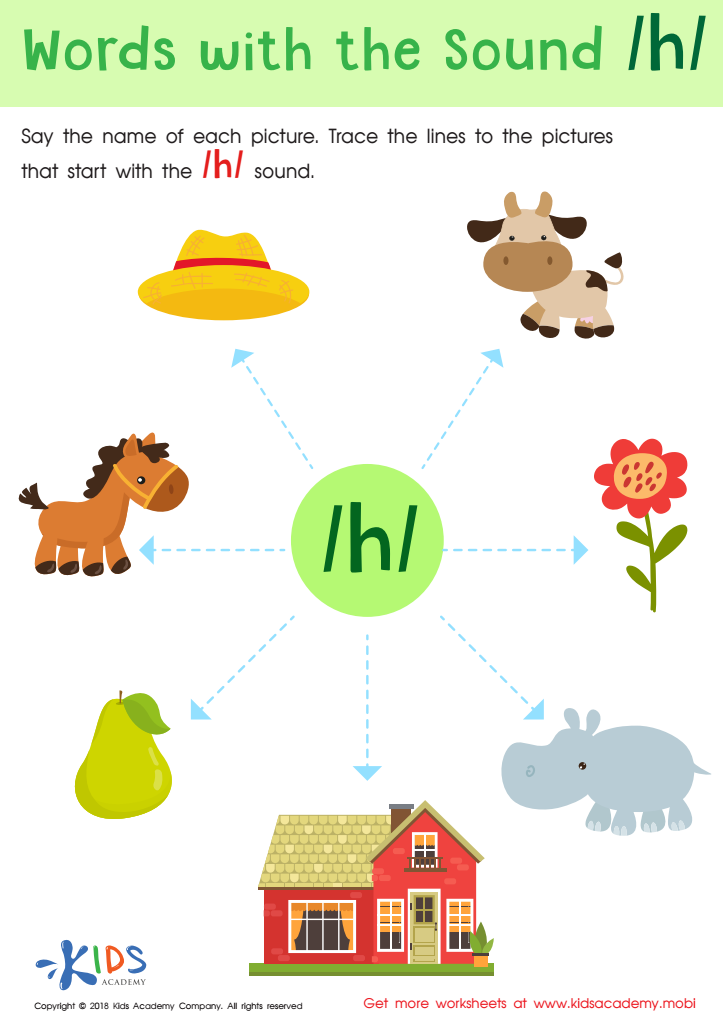

Words with sound h Reading Worksheet
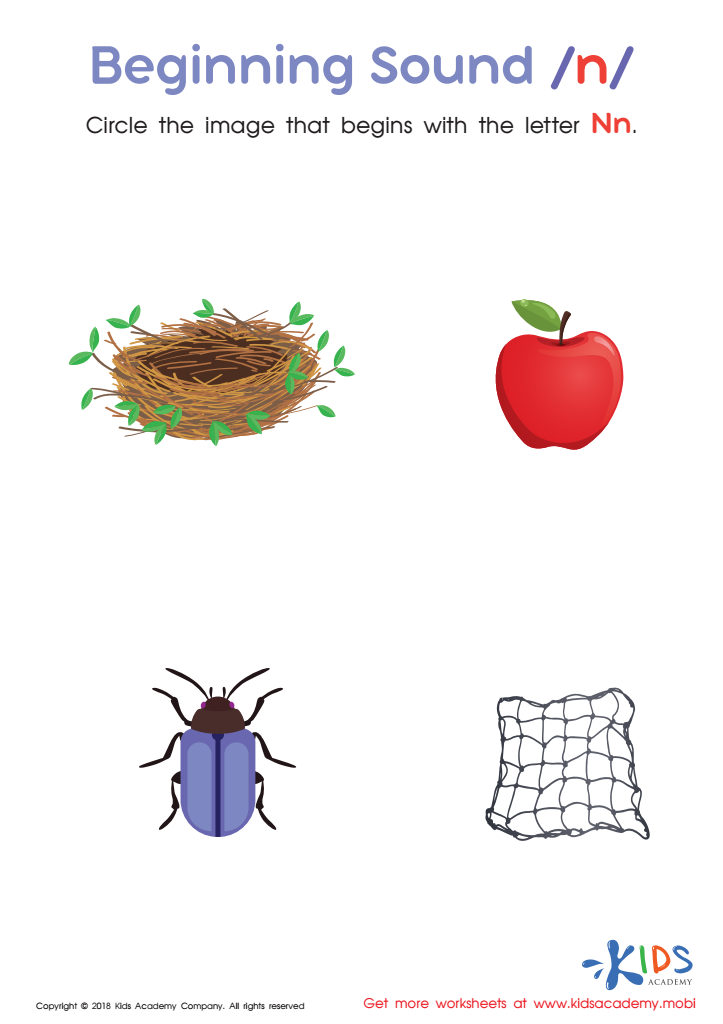

Beginning Sound «n» Worksheet
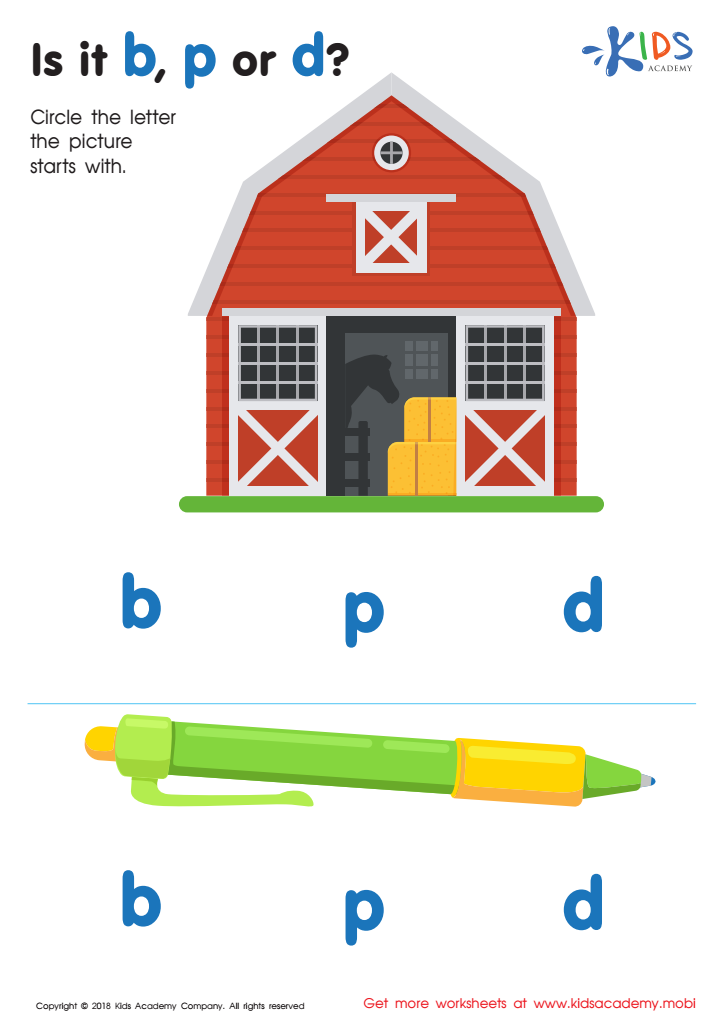

Is it b, p or d? Worksheet
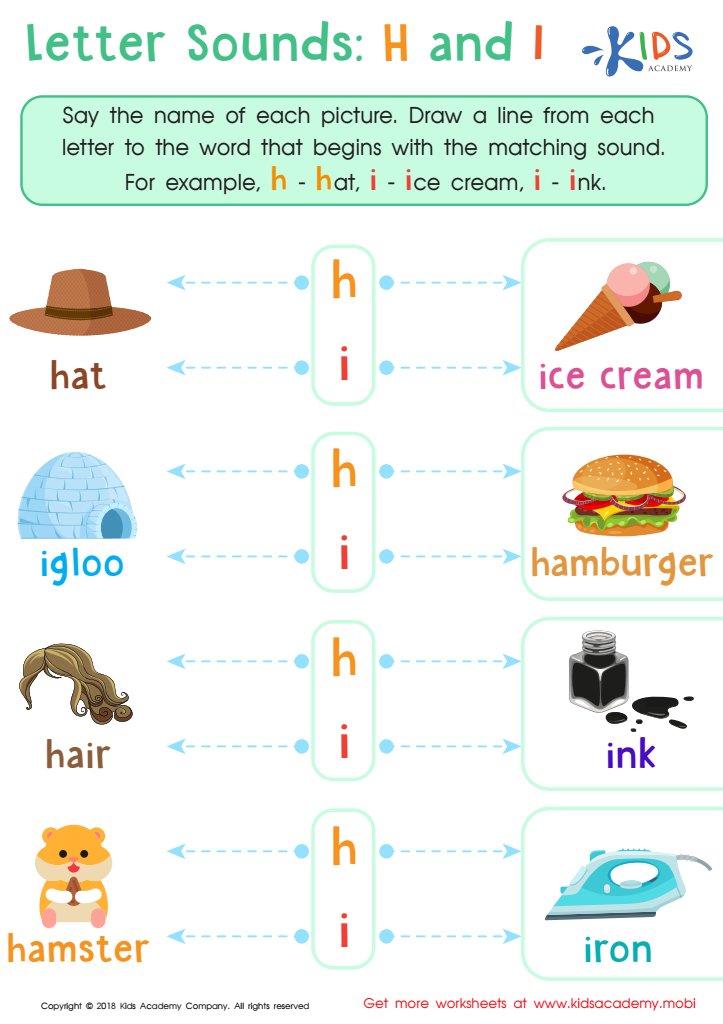

Letter H and I Sounds Worksheet


Long and Short U Worksheet
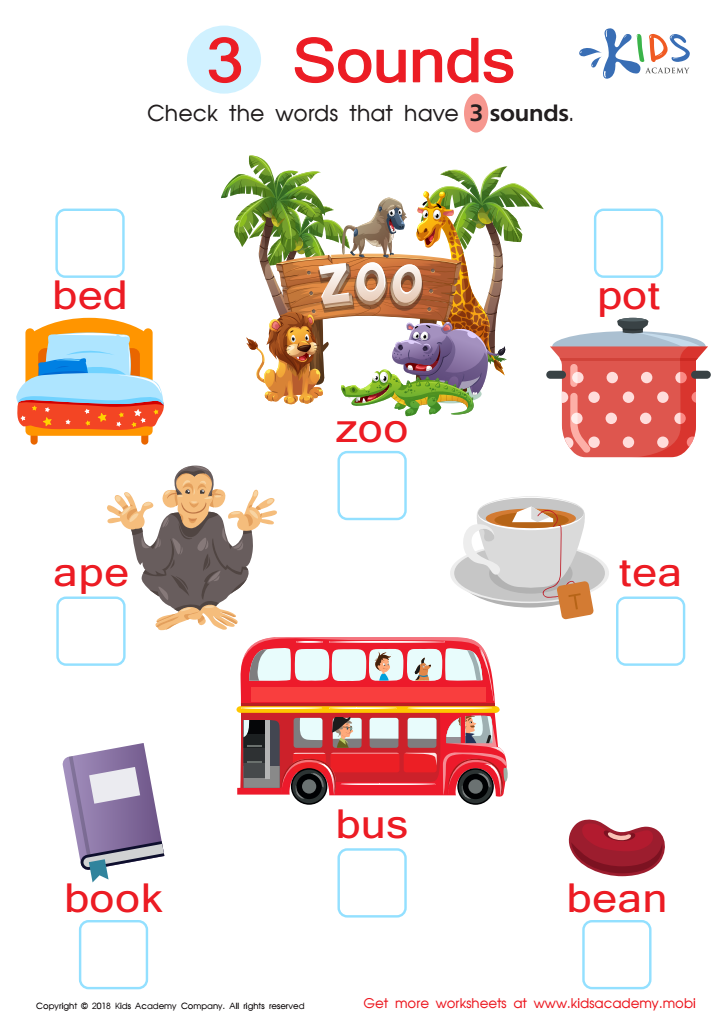

3 Sounds Worksheet
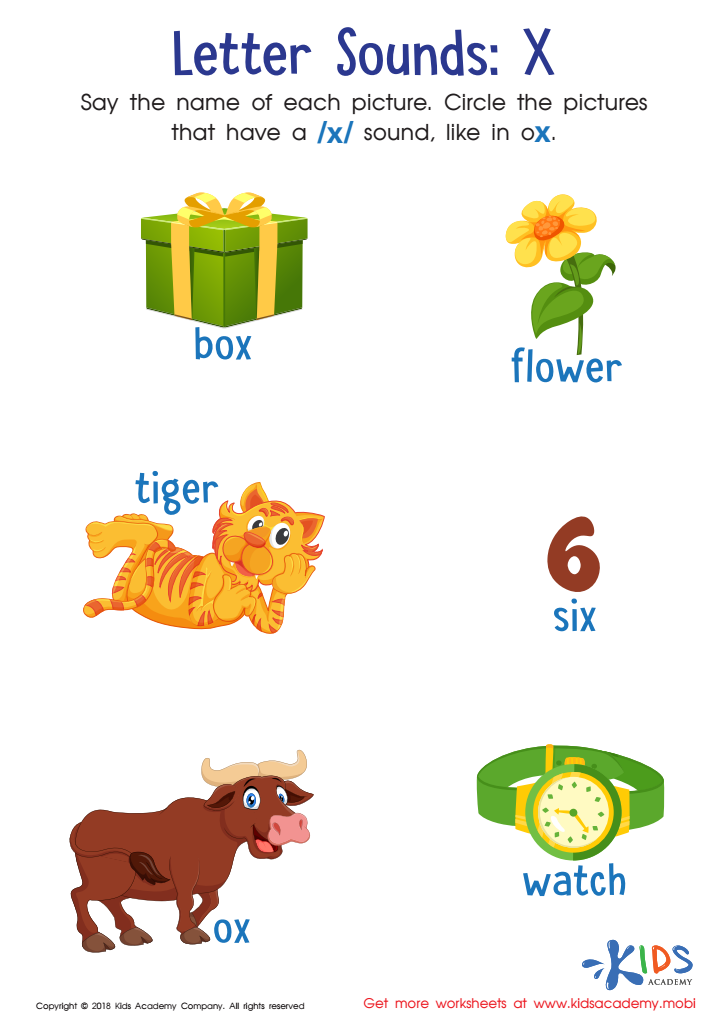

Letter X Sounds Worksheet
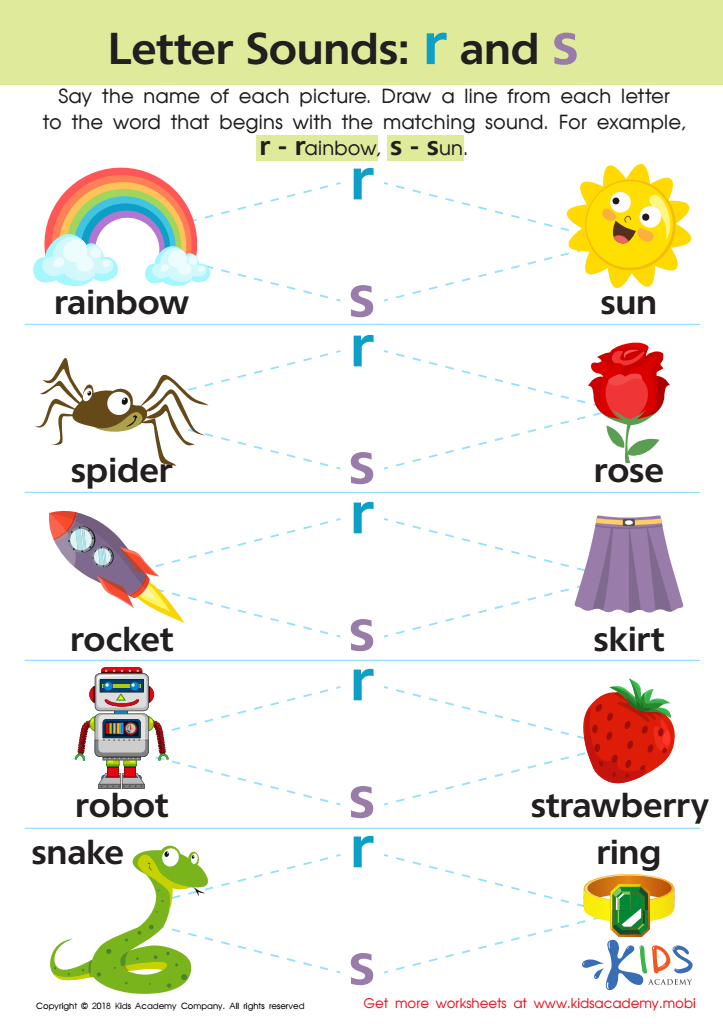

Letter R and S Sounds Worksheet
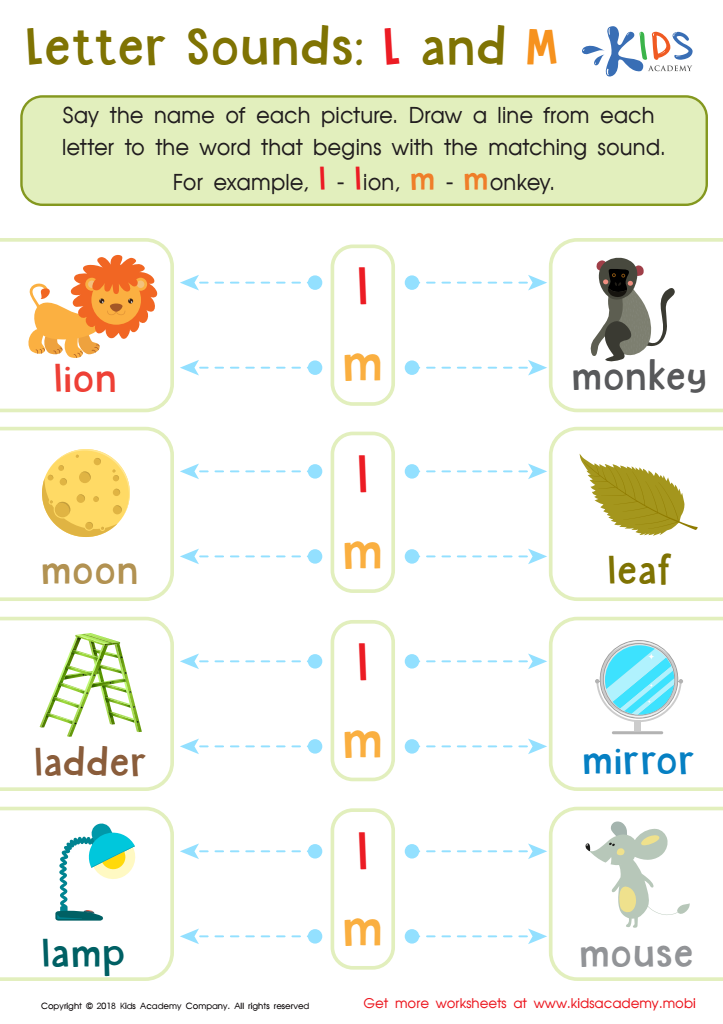

Letter l and M Sounds Worksheet


Long and Short E Worksheet


Phonological Awareness: Assessment 1 Worksheet
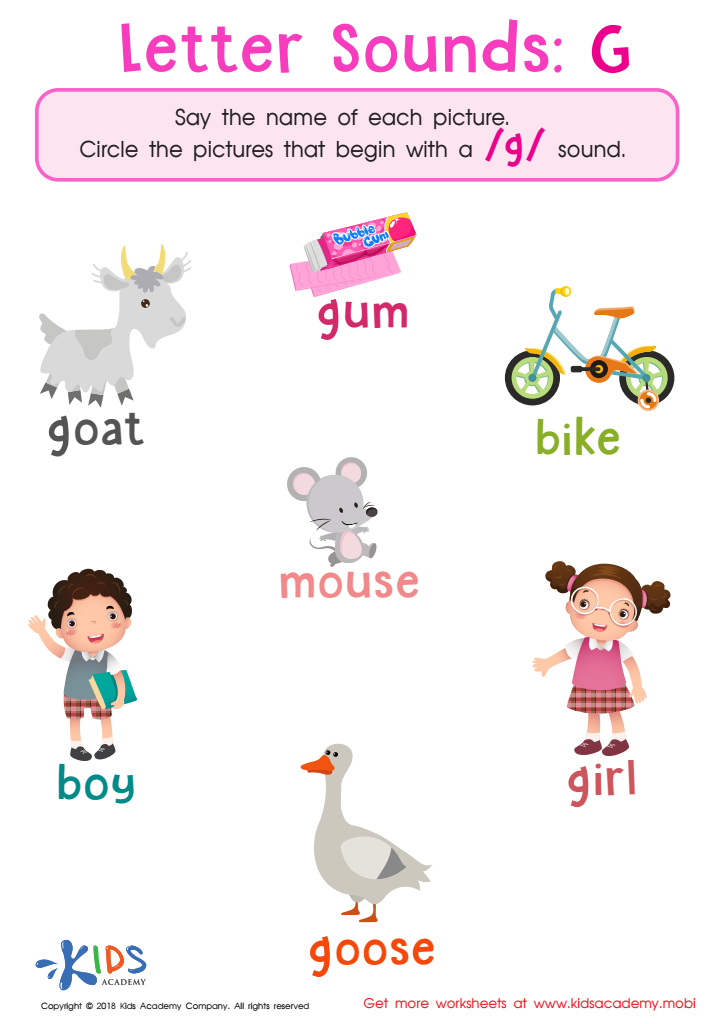

Letter G Sounds Worksheet
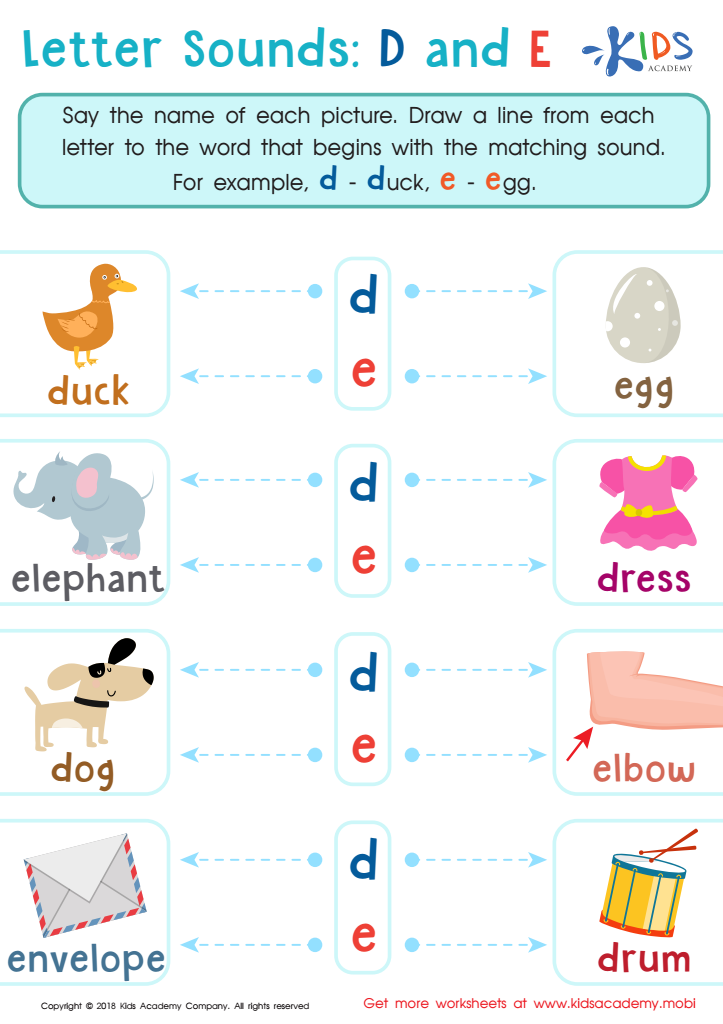

Letter D and E Sounds Worksheet
Letter recognition and phonics are fundamental skills crucial for early literacy development in children aged 5-7. Parents and teachers should prioritize these skills because they lay the groundwork for reading and writing competency. Understanding letters—their shapes, names, and sounds—enables children to decode words, which is essential for independent reading.
When children can recognize letters, they become co-creators in their learning process, feeling empowered to explore written texts. Phonics instruction, which connects sounds to letters, further enhances this ability by teaching children how to sound out words, which bolsters their confidence and comprehension.
Additionally, mastering these skills fosters a love for reading and learning. Children who engage with letters and phonics are more likely to develop positive attitudes towards books, leading to lifelong habits of reading. This becomes even more crucial as it directly impacts performance in school and beyond, with early readers often showing higher academic achievements.
By emphasizing letter recognition and phonics, parents and teachers are investing in essential literacy skills that support overall cognitive development, increase academic success, and prepare children for future learning opportunities. Encouraging early literacy not only enriches vocabulary but also enhances critical thinking skills, crucial for a child’s overall growth.
 Assign to My Students
Assign to My Students















